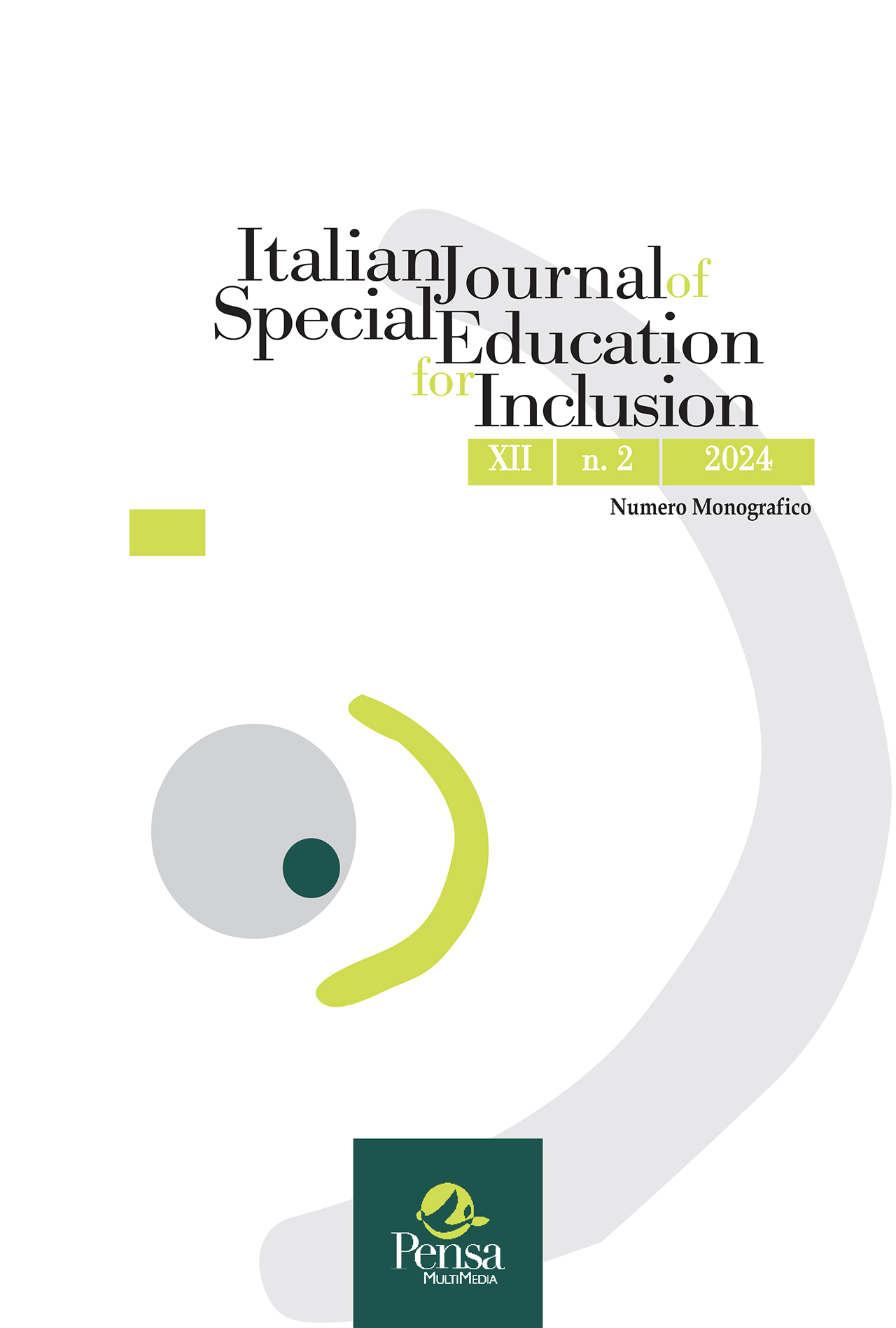Developing the ethical capacity of the teacher: a training proposal inspired by the ECS paradigm
DOI:
https://doi.org/10.7346/sipes-02-2024-17Abstract
This contribution highlights how important it is, especially in a context of continuous social and technological change such as the one we are currently experiencing, to introduce training courses that work on the development of teachers' ethical capacity, as this would guarantee greater professionalism, integrity and responsibility, crucial aspects of the teaching role that are often neglected in favour of quantitative parameters. Therefore, a training proposal inspired by the ECS paradigm is outlined, based on workshops on self-awareness techniques and the HDW workshop to develop teachers' ethical capacity to be integrated in the training contexts of support teachers as well as in the initial and in-service training of curricular teachers. These training workshops aim to create more aware, empathetic and inclusive teachers, capable of fostering a positive and welcoming school environment for all students, thanks to the building of trusting relationships between teachers and pupils, respecting diversity and strengthening school inclusion.
Downloads
Published
Issue
Section
License
Copyright (c) 2025 Antonio Cuccaro, Chiara Gentilozzi, Davide Brancato, Paola Damiani

This work is licensed under a Creative Commons Attribution 4.0 International License.


